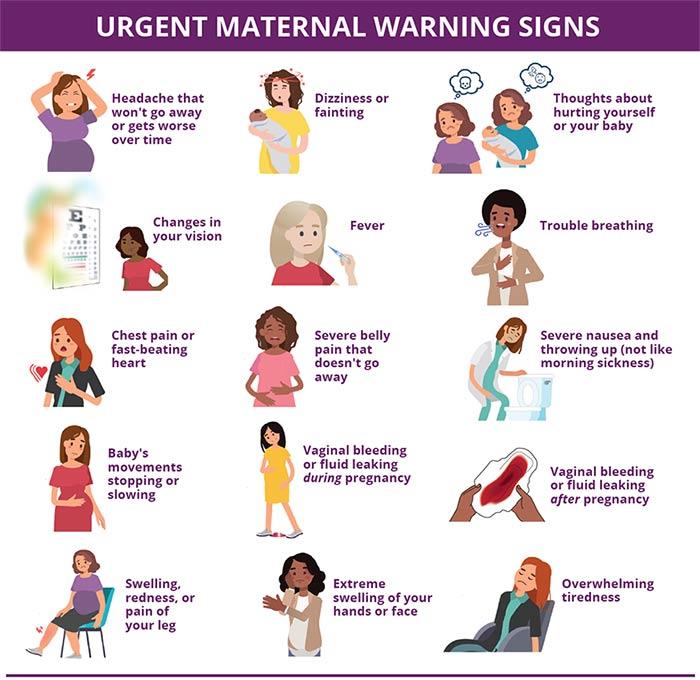Postpartum Concerns
Perinatal Mood & Anxiety Disorders
Pregnancy and childbirth are major life events for women and their families. The transition to motherhood comes with joy, happiness, and many challenges. Your reactions and emotions may surprise you, especially if they seem negative. Hormones and emotions are closely connected. These changes and the lack of sleep in the first few days after having a baby can cause mood swings, leading to sudden bouts of sadness or crying.

In some women, hormonal changes can lead to the following:
While not all postpartum mood disorders are preventable, there are some ways to lower your risk. If things seem to be getting worse despite your efforts or you are worried about the way you are feeling/thinking, ask your doctor to talk to a Woman’s social worker about different treatment options.
If you need immediate assistance:
- Call your doctor
- Go to the nearest hospital emergency department
- Call The Phone (crisis line) at 225-924-3900
Childbirth marks a significant milestone in a woman’s life and that of her family. Despite feeling ready for parenthood, a spectrum of emotions is normal, including some that may unexpectedly seem negative. These can vary from mild postpartum blues to more intense forms of depression. Download our brochure to learn more about Perinatal Mood and Anxiety Disorders.
You know your body best
After Pregnancy
While your new baby needs a lot of attention and care, it’s important to remain aware of your own body and take care of yourself, too. It’s normal to feel tired and have some pain, particularly in the first few weeks after having a baby, but there are some symptoms that could be signs of more serious problems.
If you need additional support, don’t be afraid to ask for help. Tips and Guide to Help Start the Conversation [pdf] | En Español [pdf]
If you have any of these urgent maternal warning symptoms [pdf] | En Español [pdf] during or after pregnancy, contact your health care provider and get help right away.
